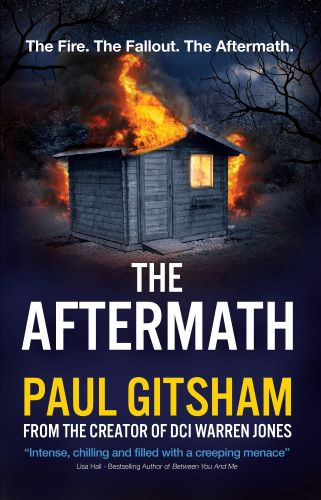Uncomfortable Truths
Listening To Your Editor

What is the link, I hear you ask?
Editing. Or rather the fact that nobody is too big to edit.
On the whole, the feedback for book 8 was actually very good. My editor really liked the story and thought that it would be popular with my readers. But she had some suggestions; primarily about pace, shortening the book, moving some of the key revelations earlier to keep things moving quickly and perhaps cutting or trimming some set-pieces.
Intellectually, I know she is right, and her advice is always extremely good and valued. But like all writers, I feel somewhat possessive about my book baby. It represents many months of hard work, including a lot of editing both before and after my beta readers went through it. Leaving aside my ego, I always feel, when I hand in that first manuscript submission, that my work is done, and I never want to see the damn book again.
Of course this is nonsense, and it is also the same reaction as most authors.
By the time I received these edits, I was already well into my next project and so a small part of me resents putting that aside to pick up something that emotionally I felt I was done with.
Boo hoo.
Suck it up, that’s part of the job.
In fact, after a few days of tearing my hair out and wondering how the hell I was going to do what was asked of me, the old excitement returned, as the ideas started to flow.
The book will be better by the time I hand it back, and I will feel even more satisfied with my effort, and my editor will get the credit she deserves.
The fact is, whether you are traditionally published, or independently published, a seasoned writer of decades experience, or a nervous debut, a professional editor is essential, and you will not convince me otherwise.
I don’t get to choose my editor, they are assigned by my publisher, but I have been extremely fortunate over the years. Every suggestion that she has made has been thoughtful and smart. That doesn’t mean I will be implementing them all. In fact, the accompanying editorial letter acknowledges that – for narrative reasons – it would be impossible to follow them all, because some would essentially contradict each other, or make things too complicated. Rather, I have been given food for thought and a series of choices. How I use them is up to me; ultimately, it is my name on the cover.
So back to the book I am reading. I have enjoyed this author’s writing for many years, but a few books back, I felt they started to dip. The reasons are many, but primarily there is too much backstory with numerous characters that have over-stayed their welcome. The books have become more of a soap opera with a couple of very cool ideas thrown in to justify them being crime thrillers. The author is writing to their target audience now; those fans who will pick up the next in the series without even thinking about it. And I think it’s a real shame, because they’ve lost something special.
It feels arrogant of me to pretend I can critique someone who was selling more copies a week than I sell in a year, two decades before I even completed my first novel. Yet perhaps that is the problem. I suspect that somewhere along the line, they became “too big to edit”.
The latest novel is a case in point. It is basically a short story stretched to fill 400 pages. The first 100 pages are essentially about the lead character’s woes. We don’t even find out there has been a death. The next 200 pages (genuinely, I’m not exaggerating) are at the crime scene.
Now I love a bit of backstory – it’s why I enjoy a series. The prose is also extremely good; this is a very experienced writer with a confident and assured writing style and a strong voice. But I know, without a shadow of a doubt, that had I submitted something similar, my editor would have immediately sent it back. The editorial letter would have been encouraging, kind and professional, but would essentially have said thus: Too slow. Cut the first 60 pages. Bring the death forward. Get them to the morgue before page 75. Do we need all these characters? Who are persons X,Y and Z and why do we care about them? We get that these characters have a complicated history, but you don’t need to keep on telling us. Cut back on the technical detail, it’s not a manual. Can you introduces some more tension, it’s too slow burn? etc etc.
And perhaps that’s why I’m not a multi-millionaire and they are?
But, despite that I still can’t help think that the book would have benefitted from a damn good edit. The sad thing is that I probably won’t read anything more by this writer; they peaked several books ago and now they are just a cash cow. And that’s a real shame.
What are your thoughts on the editing process?
As always, feel free to share here or on social media.
Best wishes,
Paul



















